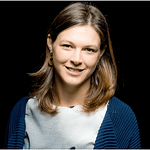
TomorrowNow Discusses Big Data for Smallholder Farmers at COP27 Microsoft Panel
TomorrowNow was honored to participate in the Microsoft Panel discussing big data for smallholder farmers at COP27, jointly convened by Microsoft Africa Transformation Office, AGRA, the Commonwealth Secretariat, and other interested partners.
Sharm El Sheikh, Egypt – TomorrowNow was honored to participate in the Microsoft Panel at COP27 to discuss the role of digitally-enabled climate smart agriculture in Africa to enable inclusive adaptation and prosperity.
Our Executive Director, Georgina Campbell Flatter, joined other expert panelists to share experiences using current approaches to agricultural data management at national and regional levels; the role of digital innovations in data aggregation and processing; and the role of national policies in supporting better data and decision making for climate-smart food systems. The outputs were used in report furthering the action points and partnerships from the AGRF2022.
In highlight, TomorrowNow shared some of the learnings that we have achieved working with private sector tech leaders, government agencies and farmer facing organizations to provide improved (and affordable) weather data through our programs.
As noted by Microsoft and partners, there are two broad types of data considered in smallholder farmer empowerment: content data– covering areas such as soil maps, agronomic data, weather data, financial data, market data; and user data — covering areas such as locations, movements, connectivity of farmers, traders, enterprises, consumers, research networks, extension networks, financial institutions, and cooperatives.
There is a huge opportunity for big data within agricultural innovation systems specially
to provide farmers and technical partners granular data on rainfall patterns, water cycles, soil fertility, carbon emissions, fertilizer requirements, and more. This enables actors to make smart decisions, such as what crops to plant for better profitability.
Speakers included:
- Moderator Nixon Gecheo, Senior Program Officer – Digital Systems Solutions for Agriculture, AGRA
- Panelists:
- Kunle Awosika, Managing Director, Africa Transformation Office, Microsoft
- Benjamin Kwasi Addom, Adviser, Agriculture; Fisheries Trade Policy, The Commonwealth
- Dr. Oluyede (Olu) Ajayi, Program Lead, Food Security and Rural Well-being Global Center on Adaptation
- Georgina Campbell Flatter, Executive Director, TomorrowNow.org
